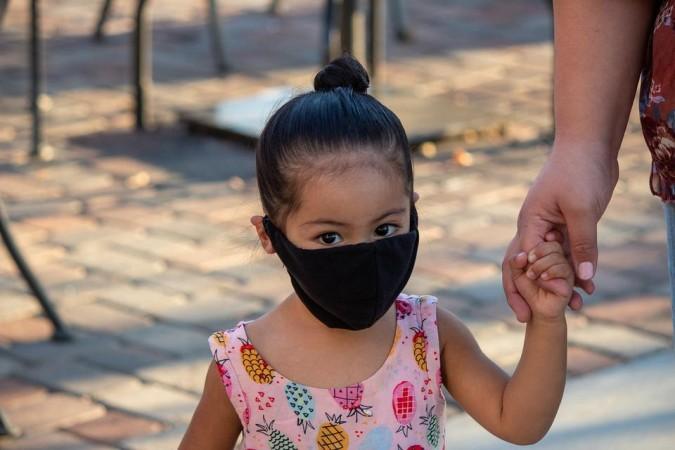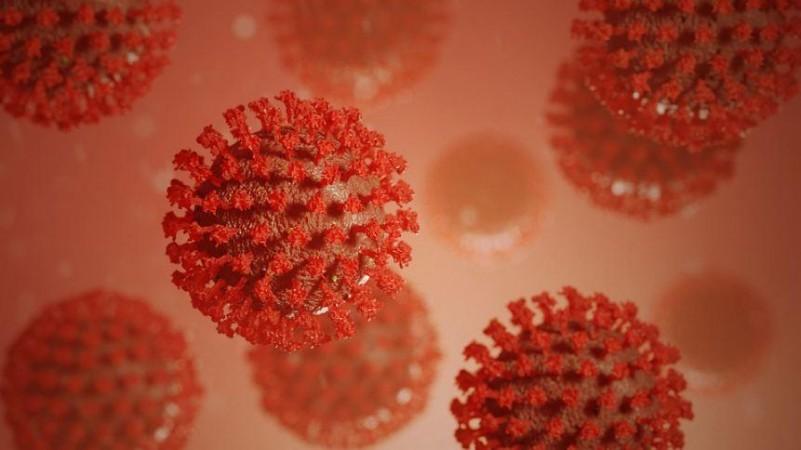Since the onset of the COVID-19 pandemic, the SARS-CoV-2 coronavirus had battered humanity with multiple variants. Two mutants in particular—Delta (B.1.617.2) and Omicron (B.1.1.529)—have ravaged populations across all ages indiscriminately, including children. Now, a new study has suggested that children below the age of five, who are infected with the Omicron variant, have a lower risk of developing severe outcomes than those infected with the Delta variant.
The new multi-institutional research also found that while the severity of Omicron was lower than that of Delta, it was more infectious than the latter. Also, the study is among the first large-scale studies to compare the outcomes of the COVID-19 infection caused by Omicron to that brought on by Delta in children below the age of five; an age group that is currently ineligible for vaccination.
"The major conclusion to our research was that many more children were infected with Omicron when compared to Delta, but the children who are infected are not impacted as severely as were children infected with the Delta variant," said Dr. Pamela Davis, lead author of the study, in a statement. The findings were published in the journal JAMA Pediatrics.
Evaluating Outcomes in Children

For the study, the team examined data of 651,640 children below the age of five in the US, who had been in contact with healthcare organisations between September 2021 and January 2022. The cohorts included 22,772 and 66,692 children who were infected with the Omicron and Delta variants respectively.
The study population was divided into three cohorts: the Omicron cohort (those who contracted the infection between 26 December 2021 and 25 January 2022; the Delta cohort (those who contracted the infection between 1 September 2021 and 15 November 2021; and the Delta2 cohort (those who contracted the infection between 16 November 2021 and 30 November 2021.
Delta2 was developed as a control for a shorter infection window and later time periods. In addition to this, the authors also compared the records of over 10,000 children immediately prior to the detection of the highly-infectious Omicron; however, when delta was still dominant.

The researchers also evaluated clinical outcomes in children during a 14-day window following the contraction of the viral infection. Some of the factors considered were: mechanical ventilation use, hospitalizations, emergency room visits, and ICU admissions. Demographic data analysis was also conducted.
Lower Severity of Omicron
Through their investigation, the team ascertained that the Omicron variant was six to eight times more infectious than its Delta cousin. They also learnt that children who were infected with Omicron were younger on average; 1.5 years of age against 1.7 years. They had lesser co-morbidities.
When it came to severe clinical outcomes, there was a 16 percent lower risk of emergency room visits and an 85 percent lesser risk of the need for mechanical ventilation. Additionally, it was found that around 1.8 percent of the children infected with Omicron required hospitalization, in comparison to 3.3 percent for Delta.

Dr. Rong Xu, corresponding author of the study, highlighted, "We saw the number of hospitalizations within this age group skyrocket in January of this year because the infection rate of Omicron is about 10 to 15 times compared to that of the Delta variant.
While the findings suggest that the outcome of infection with the Omicron variant is less severe than Delta, Dr. Xu emphasized that a decrease in the severity of clinical outcomes does not really leave pediatric patients out of the woods. "Furthermore, since so many un-vaccinated children were infected, the long-term effects of COVID-19 infections on the brain, heart, immune systems, and other organs of children remains unknown and worrisome," she concluded.

















